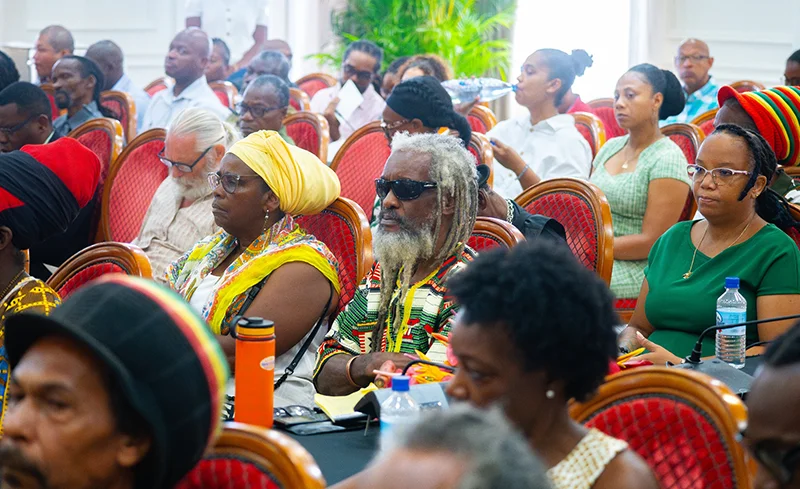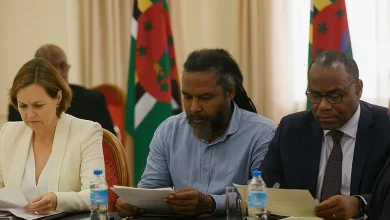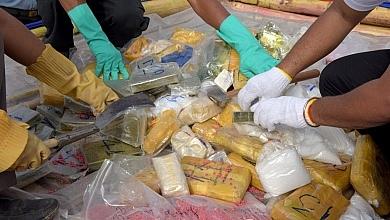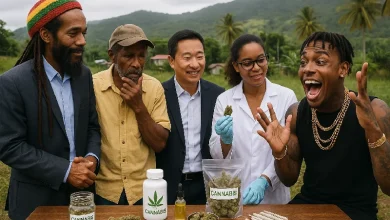A Careful Start: What Day Two of the Cannabis Symposium Got Right

I don’t usually write things like this. I’m not on Facebook much, I don’t go to protests, and I’ve never smoked ganja. But I watched both days of the Cannabis Symposium from Prime Minister Roosevelt Skerrit‘s social media profile and felt I should say something, especially about the second day. It was more serious, more focused. And something in the tone of it made me sit quietly and listen, not just with doubt like I sometimes do, but with a bit of patience.
I’ve worked in education and been part of community groups since the 1990s. So I’ve heard governments talk before. I’ve seen plans launched and dropped. That’s why I don’t get excited easily. But on the second day of this symposium, I noticed something that felt more grounded than usual. They were not just praising the cannabis plant. They were talking about how to manage it carefully, how to regulate it, how to include people, how to avoid the mistakes other countries made. And most of all, how to make sure we don’t mess this up.
It Sounded Like They’ve Done Homework
What impressed me wasn’t any single speech. It was the structure of the discussions. Presenters came with data, comparisons, timelines. They mentioned things like seed-to-sale tracking, export certification, and technical support. These are the kinds of details I never used to hear in Dominica’s policy discussions back in the 90s or even early 2000s. That told me that they’re not starting from zero.
The people speaking, from ministries, from the OECS, even from regional banks, talked about things I hadn’t heard mentioned on the radio. Like how hard it is to move money in cannabis because of international banking restrictions. Or how farmers could lose out if large players aren’t regulated properly. That kind of honesty is new.
And I don’t say that lightly. For many years, government events have been full of big phrases and small follow-up. But this one had outlines, committees, and frameworks. That matters. Maybe it’s because of how global the issue is, or maybe it’s because they’ve seen failures in nearby islands. Either way, they sounded like they’re preparing properly.
I Thought of the Small Farmers the Whole Time
I’m from the southeast. My family worked lands that my grandfather passed down, and though we were never rich, we always planted something. So when I heard speakers like Dr. Emmanuel and others talk about small farmers being given special consideration, I paid attention.
They said a lot of things that matter to people like us. That there should be tiers of licensing. That traditional growers and herbalists must be included. That not everyone will be able to afford modern equipment or legal services, so there must be public support. It’s one thing to hear those words. It’s another to feel they are part of the plan.
What stood out even more was the mention of cooperatives. I’ve worked with them before, and I know they can protect people who don’t have power on their own. If the cannabis industry in Dominica ends up being structured with proper cooperatives, real ones, not fake fronts, then maybe, just maybe, a man with a quarter-acre plot in Salybia or a woman with a backyard garden in Petite Soufrière might stand a chance to benefit.
We’ve seen what happened with limes, citrus, and even bay oil. So much left our shores with so little return. That’s why I was glad to hear several people talk not just about growing, but about value-added processing, and controlling more of the market. It shows some lessons were learned.
They Spoke About Youth and Health with Real Caution
Now, one of the things I worried about before this event is that it would only focus on economics. But I was relieved to see that wasn’t the case. In fact, quite a bit of time was spent talking about how cannabis affects young people, and how mental health needs to be factored in as we move forward.
The doctors, educators, and ministry staff weren’t scolding or making it sound like cannabis is evil. But they were clear. Without education, without strong messaging, and without systems to prevent abuse, legalization could do harm too. That’s what I appreciated, balance.
It reminded me of when seatbelt laws first came in. People resisted at first. But with time, education, and enforcement, it became normal. Maybe cannabis will be the same. If we do it slowly and with support, not just rush it through, we might manage it well.
A Step Forward That’s Not Just About Ganja
I don’t expect miracles. But I do think the way this event was handled says something about how this government is operating. They gave time to farmers, to youth advocates, to spiritual leaders. And they brought in regional experts who didn’t come to preach, but to share what their countries went through. That’s a good sign.
Maybe this is how we should handle more issues in Dominica, bring people together, ask hard questions, then put the ideas into something concrete. I would love to see this same approach used for our education reform, or even land use planning. Imagine if we had two days like this just on housing, or food production, or elder care.
It’s not just about the cannabis. It’s about whether we’re learning to govern with care.
Let’s Not Let the Window Close
I’ll finish by saying this: we still have a chance to do this right. And Day Two showed me that the people in charge are at least trying to put the structure in place before opening the gate. That’s good. What comes next will matter even more.
We need to protect small growers. We need to write clear laws. We need to make room for the people who were once punished for this plant. And we need to ensure our young people get guidance, not just exposure.
For the first time in a while, I feel we might not be rushing this. We might actually be preparing for something, not just reacting to what other countries are doing.
I’ll keep watching. And I hope that six months from now, we’ll be able to say that this was the moment Dominica got it right.
This article is copyright © 2025 DOM767








